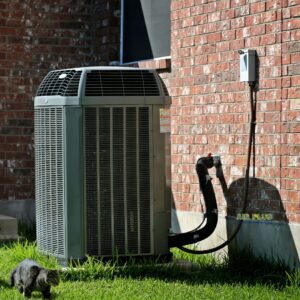Let’s cut to the chase. If your AC is too small, your house won’t cool down. If it’s too big, your energy bills go through the roof. Getting the right size air conditioner is not about guessing. It’s about doing the math. At Air Plus, we do this every day for people here in Stuart, FL. Here’s how you can figure it out step-by-step.
Why Size Matters
AC size is measured in tons. One ton equals 12,000 BTUs (British Thermal Units) of cooling per hour. But don’t get stuck on the word “tons.” You’re not buying weight; you’re buying cooling power.
If your unit is too small, it runs all day trying to catch up. Your house never gets cool enough, and the system wears out faster.
Too big, and it turns on and off constantly (short cycling). That kills efficiency and shortens the lifespan.
Bottom line: the right size = lower bills + better comfort + longer lifespan.
Quick Rule of Thumb (But Not Enough)
Some people use a quick formula: 20 BTUs per square foot of living space. So, if you have a 1,500 sq ft house:
1,500 sq ft x 20 BTUs = 30,000 BTUs (or about 2.5 tons)
Sounds simple, right? But wait. This is just a rough guess. Florida heat, insulation, window count, ceiling height, and sun exposure, all these things change the number.
The Real Way: Manual J Calculation
The Manual J Load Calculation is the gold standard. It factors in:
- Square footage
- Number of windows and doors
- Insulation levels
- Type of roofing
- Ceiling height
- The direction your home faces
- Number of people living there
- Appliances and lighting
At Air Plus, we run this calculation for every install. That’s how we make sure your system isn’t overworked or underpowered.

Florida Factors
Here in Stuart, FL, we have:
- High humidity
- Strong sun exposure
- Long cooling seasons
That means you might need a slightly larger system than someone living up north. But again, not too big. Oversizing is just as bad.
Example Breakdown
Let’s say you have a 2,000 sq ft home in Stuart. It’s a single-story with decent insulation, lots of windows, and a south-facing front. You’ve got a family of four and some heat-producing appliances.
- Base BTUs: 2,000 sq ft x 20 = 40,000 BTUs
- Add 10% for sun exposure: 44,000 BTUs
- Add another 10% for people/appliances: 48,400 BTUs
Now, you’re in the range of 4 tons (48,000 BTUs).
But again, we always recommend a Manual J calculation to be exact.
Other Things to Consider
1. Ductwork
Even if your AC is perfect, bad ducts kill performance. Leaks, poor design, or dirty ducts can drop efficiency by 20-30%.
2. Thermostat Location
Don’t stick it near a window or the kitchen. That gives false readings and messes with the cycle.
3. Zoning
Have a big home or a second story? You might want to zone your system. That means different areas can have different temperatures.
4. SEER Rating
SEER = Seasonal Energy Efficiency Ratio. Higher SEER means better energy use. Florida requires at least 15 SEER for new installs. We often recommend 16-20 SEER for long-term savings.
Final Answer: Call the Pros
If you’re in Stuart, Palm City, or anywhere in Martin County, let us handle it. At Air Plus, we do free consultations and full Manual J calculations before we ever sell or install a system. No guesswork. Just results.
Don’t waste money on the wrong AC. Call Air Plus today at (772) 486-2002 or visit airplusservices.com. We’ll get you the right size, the right system, and the right price.
